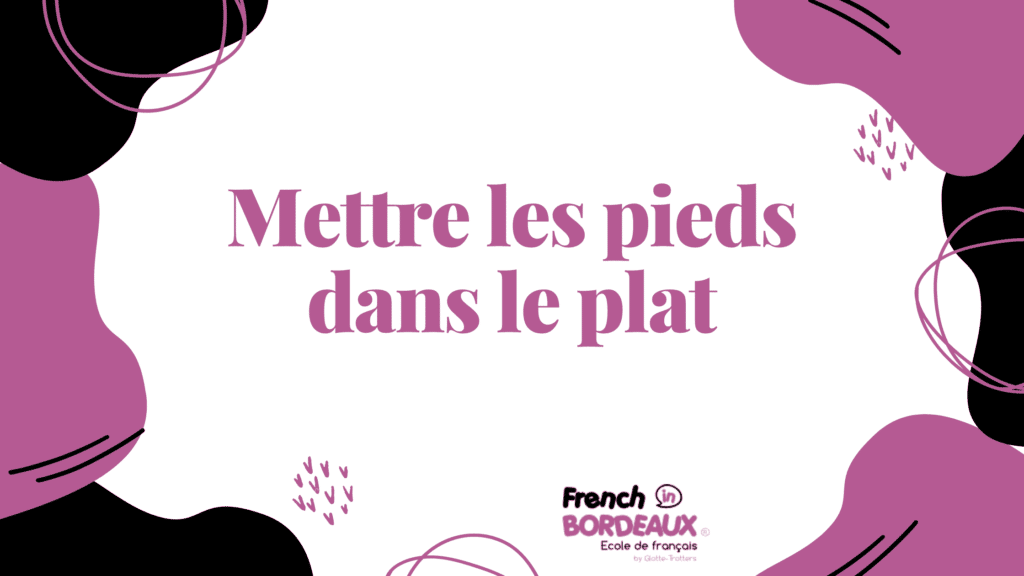
During a meal with your friends, one of you has the impertinence of jumping to the table and putting their feet in one of the dishes perfectly decorated with the recently cooked meal. This loony would certainly be ejected from the party!
To put your feet in your dish? It sounds disgusting, right? There is one clue we can give you, it has nothing to do with the culinary field and we can’t take this expression in a literal way.
Where does this expression come from?
A “plat” is an object we use in the kitchen and for having our meals, it is “plat” (flat) at the bottom and that is why it’s called that way. Back in the XIX century, the word “plat” (dish) was a big area of low waters. “Mettre les pieds dans le plat” means “gaffer” (to make a gaffe). As a matter of fact, this verb means in provençal “patauger dans la boue” (to flounder). The bottom of a “plat”, in the sense we established before, is often muddy and interferes with the clarity of the water when we put our feet in it. It is this phenomenon that this expression intends to portray.
What’s its meaning then?
It means that a person clumsily approaches a sensible topic in a discussion. But they not only start talking about it, they keep on doing it for a long period of time without realizing the uneasiness of their audience. Thus, the first meaning this expression acquired was “to act without discretion”. However, it can be used when someone approaches a subject people avoid, but that needs to be brought to the table.
You can make use of this expression, for example…
During a political debate : The candidates to the presidential election are debating the environmental subject without targeting the real problem neither proposing a real change. All of a sudden, one of the candidates decides to “mettre ses pieds dans le plat” assuring his government will sign the Tokyo Agreement and invites everyone to join the initiative. It is considered as “mettre les pieds dans le plat”, because the other candidates were avoiding the main problem, but this one decided it was time to come clear and go straight to the point.
At the court: In the middle of a trial, there is one person accused of committing a crime and long discussions take place during hours. Suddenly, the attorney addresses the audience and pleads his client is innocent. It is something nobody was expecting, but the attorney decided to put an end to the endless trial being brutally direct and honest.
In a daily life discussion: A couple just had a fight and have been avoiding talking about what happened. One night, one of them says “We should really discuss what happened two days ago. I’m not feeling good.” and they address the subject even if it hurts.
In a daily life discussion : One of your dearest friends lost their grandmother one week ago. You have a friend who is usually very distracted and one day when you’re having dinner together, they forget and start talking about the great weekend they had with their grandparents in front of your other friend. This person didn’t do it intentionally, but he certainly “a mis les pieds dans le plat”.
We hope you could understand the meaning of this expression and that you would use it when a similar situation happens in your life!
We have set up some quizzes so that you can better understand this expression. Just click below to access these quizzes.